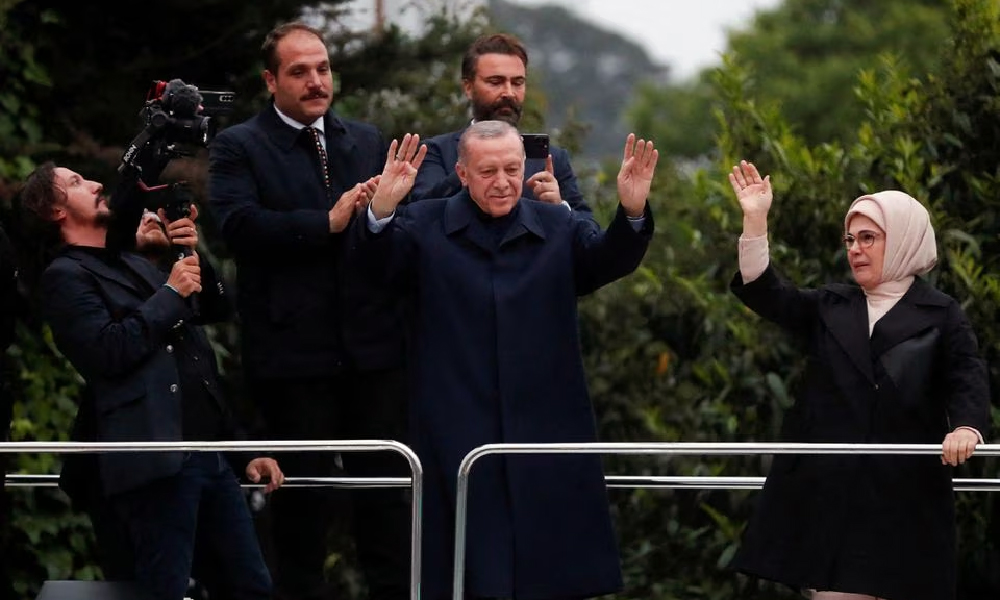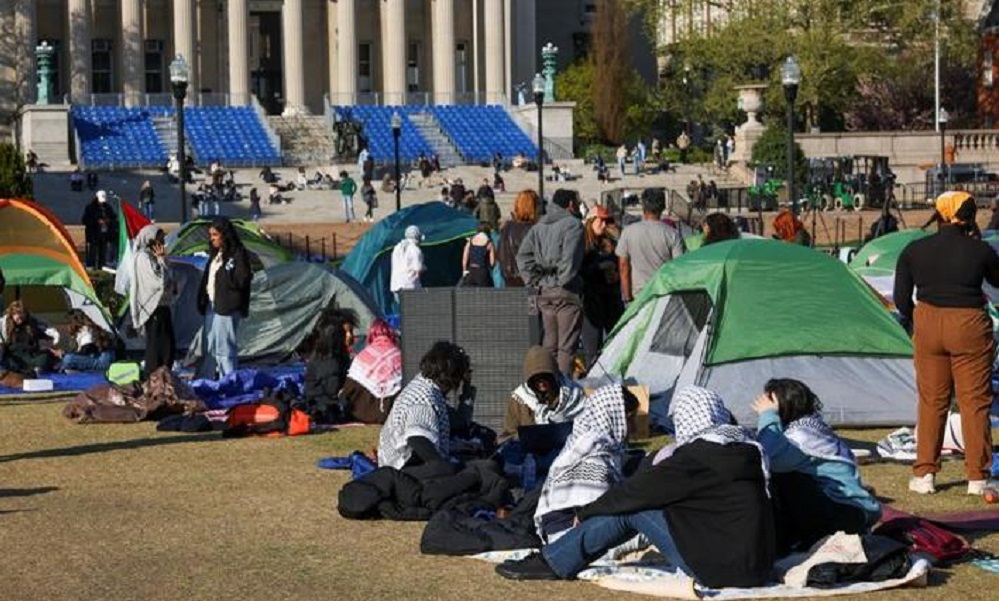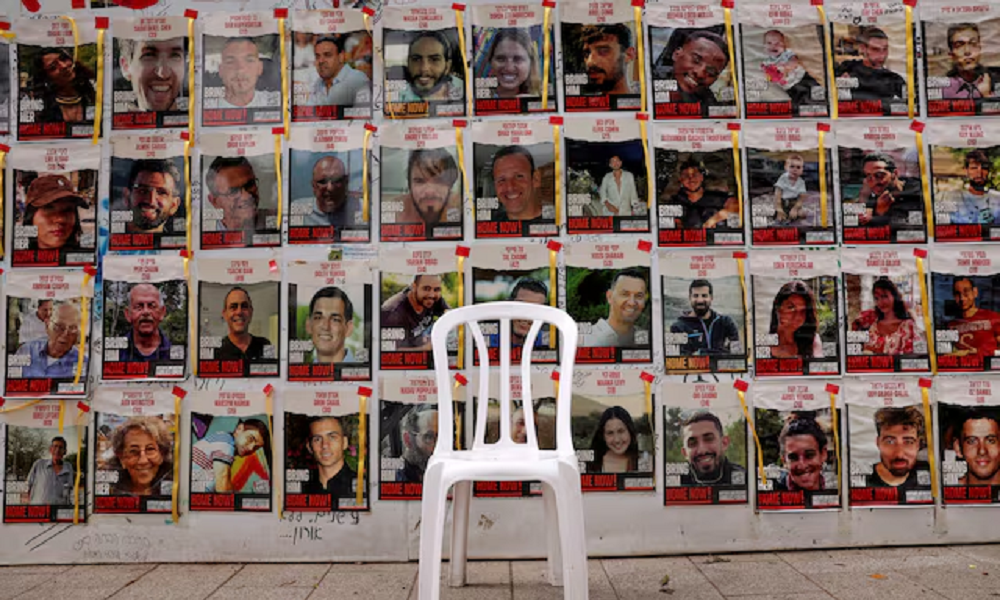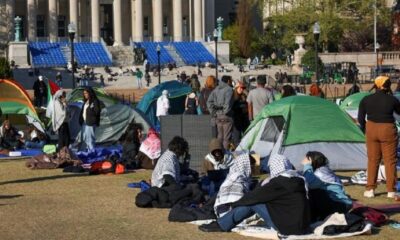World
Turkey’s Erdogan prevails in election test of his 20-year rule

President Tayyip Erdogan extended his two decades in power in elections on Sunday, winning a mandate to pursue increasingly authoritarian policies which have polarised Turkey and strengthened its position as a regional military power, Reuters reported.
His challenger, Kemal Kilicdaroglu, called it “the most unfair election in years” but did not dispute the outcome.
Official results showed Kilicdaroglu won 47.9% of the votes to Erdogan’s 52.1%, pointing to a deeply divided nation.
The election had been seen as one of the most consequential yet for Turkey, with the opposition believing it had a strong chance of unseating Erdogan and reversing his policies after his popularity was hit by a cost-of-living crisis, read the report.
Instead, victory reinforced his image of invincibility, after he had already redrawn domestic, economic, security and foreign policy in the NATO member country of 85 million people.
The prospect of five more years of his rule was a major blow to opponents who accused him of undermining democracy as he amassed ever more power – a charge he denies.
In a victory speech in Ankara, Erdogan pledged to leave all disputes behind and unite behind national values and dreams but then switched gears, lashing out at the opposition and accusing Kilicdaroglu of siding with terrorists without providing evidence, Reuters reported.
He said releasing former pro-Kurdish party leader Selahattin Demirtas, whom he branded a “terrorist,” would not be possible under his governance.
Erdogan said inflation was Turkey’s most urgent issue.
Kilicdaroglu’s defeat will likely be mourned by Turkey’s NATO allies which have been alarmed by Erdogan’s ties to Russian President Vladimir Putin, who congratulated his “dear friend” on his victory, read the report.
U.S. President Joe Biden wrote on Twitter: “I look forward to continuing to work together as NATO Allies on bilateral issues and shared global challenges.”
U.S. relations with Turkey have been impeded by Erdogan’s objection to Sweden joining NATO as well as Ankara’s close relationship with Moscow and differences over Syria.
Addressing jubilant supporters earlier from atop a bus in Istanbul, Erdogan, 69, said “the only winner today is Turkey”. “I thank every single one of our people who once again gave us the responsibility to govern the country five more years,” he said.
Erdogan’s victory extends his tenure as the longest-serving leader since Mustafa Kemal Ataturk established modern Turkey from the ruins of the Ottoman Empire a century ago – a politically potent anniversary to be marked in October with Erdogan in charge.
Erdogan, head of the Islamist-rooted AK Party, appealed to voters with nationalist and conservative rhetoric during a divisive campaign that deflected attention from deep economic troubles.
In his victory speech, he attacked the opposition again, calling them pro-LGBT.
Kilicdaroglu, who had promised to set the country on a more democratic and collaborative path, said the vote showed people’s will to change an authoritarian government. “All the means of the state were laid at the feet of one man,” he said.
Erdogan supporters, who gathered outside his Istanbul residence, chanted Allahu Akbar, or God is Greatest.
“I expect everything to become better,” said Nisa, 28, a headscarved woman wearing a headband with Erdogan’s name.
Another Erdogan supporter said Turkey would get stronger with him in office for five more years.
“There are issues, problems in every country around the world, in European countries as well … With strong leadership we will overcome Turkey’s problems as well,” said the supporter who gave his name as Mert, 39, as he celebrated with his son.
Bugra Oztug, 24, who voted for Kilicdaroglu, blamed the opposition for failing to change. “I feel sad and disappointed but I am not hopeless. I still think there are people who can see the realities and truth,” Oztug said.
Erdogan’s performance has wrong-footed opponents who thought voters would punish him over the state’s initially slow response to devastating earthquakes in February, in which more than 50,000 people died, Reuters reported.
But in the first round of voting on May 14, which included parliamentary elections, his AK Party emerged top in 10 of the 11 provinces hit by the earthquakes, helping it to secure a parliamentary majority along with its allies.
French President Emmanuel Macron offered congratulations, saying France and Turkey had “huge challenges to face together”.
The presidents of Iran, Israel, and the Saudi king were among leaders to congratulate him in the Middle East, where Erdogan has asserted Turkish influence, at times with military power. Erdogan, who was for years at odds with numerous governments in the region, has taken a more conciliatory stance in recent years.
Emre Erdogan, a political science professor at Istanbul’s Bilgi University, attributed Erdogan’s success to his supporters’ belief “in his ability to solve problems, even though he created many of them”.
Erdogan had also maintained the support of conservative voters who long felt marginalised. “This era will be characterized by a decline in political and civil liberties, polarization, and cultural fights between two political tribes,” he said.
Erdogan appeared to have prevailed despite years of economic turmoil which critics blamed on unorthodox economic policies which the opposition had pledged to reverse.
Uncertainty about what an Erdogan win would mean for economic policy pushed the lira to record lows last week, Reuters reported.
Reuters reported last week that there was disagreement within Erdogan’s government over whether to stick with what some called an unsustainable economic programme or to abandon it.
Kilicdaroglu had promised to reset governance, restore human rights, and return independence to the courts and central bank after they were sidelined over the last decade.
World
Police arrest scores of pro-Palestinian protesters on US university campuses

Pro-Palestinian protesters were arrested on a handful of U.S. university campuses on Saturday, as activists vowed to keep up the movement seeking a ceasefire in Israel’s war with Hamas among other demands.
The Indiana University police department in Bloomington said in an emailed statement that 23 protesters were arrested there.
Indiana State Police along with Indiana University police told demonstrators they could not pitch tents and camp on campus. When the tents were not removed, police arrested and transported protesters to the Monroe County Justice Center on charges of criminal trespass and resisting arrest.
“The Indiana University Police Department continues to support peaceful protests on campus that follow university policy,” the police statement read.
Pro-Palestinian protests have spread to college campuses across the U.S., stoked by the mass arrest of over 100 people on Columbia University’s campus last week.
In addition to a ceasefire, protesters are demanding that their schools divest from companies involved with Israel’s military and seeking an end to U.S. military assistance for Israel along with amnesty for students and faculty members who have been disciplined or fired for protesting.
School leaders at several universities have responded in the past week by asking police to clear out camps and arrest those who refuse to leave. While saying they defend free speech rights to protest, the leaders say they will not abide activists infringing on campus policies against hate speech or camping out on university grounds.
Massachusetts State Police said in a statement that they helped clear out a protest encampment at Northeastern University in Boston and that 102 protesters who refused to leave were arrested and will be charged with trespassing.
Northeastern University said in a statement on social media that it decided to call in police as “what began as a student demonstration two days ago was infiltrated by professional organizers with no affiliation to Northeastern.”
At Arizona State University, campus police arrested 69 protesters early Saturday, the school said in a statement.
The university said “a group of people – most of whom were not ASU students, faculty or staff – created an encampment and demonstration” and were arrested and charged with criminal trespass after refusing to disperse. – REUTERS
World
Hamas says it received Israel’s response to its ceasefire proposal

Hamas said it had received on Saturday Israel’s official response to its latest ceasefire proposal and will study it before submitting its reply, the group’s deputy Gaza chief said in a statement.
“Hamas has received today the official response of the Zionist occupation to the proposal presented to the Egyptian and the Qatari mediators on April 13,” Khalil Al-Hayya, who is currently based in Qatar, said in a statement published by the group.
After more than six months of war with Israel in Gaza, the negotiations remain deadlocked, with Hamas sticking to its demands that any agreement must end the war.
An Egyptian delegation visited Israel for discussion with Israeli officials on Friday, looking for a way to restart talks to end the conflict and return remaining hostages taken when Hamas fighters stormed into Israeli towns on Oct. 7, an official briefed on the meetings said.
The official, who spoke on condition of anonymity, said Israel had no new proposals to make, although it was willing to consider a limited truce in which 33 hostages would be released by Hamas, instead of the 40 previously under discussion.
On Thursday, the United States and 17 other countries appealed to Hamas to release all of its hostages as a pathway to end the crisis.
Hamas has vowed not to relent to international pressure but in a statement it issued on Friday it said it was “open to any ideas or proposals that take into account the needs and rights of our people”.
However, it stuck to its key demands that Israel has rejected, and criticised the joint statement issued by the U.S and others for not calling for a permanent ceasefire and the withdrawal of Israeli forces from Gaza.
White House national security adviser Jake Sullivan said on Friday he saw fresh momentum in talks to end the war and return the remaining hostages.
Citing two Israeli officials, Axios reported that Israel told the Egyptian mediators on Friday that it was ready to give hostage negotiations “one last chance” to reach a deal with Hamas before moving forward with an invasion of Rafah, the last refuge for around a million Palestinians who fled Israeli forces further north in Gaza earlier in the war.
Meanwhile, in Rafah, Palestinian health officials said an Israeli air strike on a house killed at least five people and wounded others.
Hamas fighters stormed into Israeli towns on Oct. 7, killing 1,200 people and capturing 253 hostages. Israel has sworn to annihilate Hamas in an onslaught that has killed more than 34,000 Palestinians.
World
In Beijing, Blinken meets Xi and raises US concerns about China’s support for Russia

U.S. Secretary of State Antony Blinken raised concerns on Friday about China’s support for Russia’s military, one of the many issues threatening to sour the recent improvement in relations between the world’s biggest economies.
Blinken raised the matter during five-and-a-half hours of talks with China’s top diplomat Wang Yi in Beijing, the latest high-level contact between the countries that have reduced the acrimony that pushed ties to historic lows last year.
The U.S. diplomat is due to wrap up his visit on Friday with little progress on a raft of contentious issues including U.S. complaints about cheap Chinese exports. Instead, both sides are focusing on pragmatic issues like people-to-people exchanges.
“The Secretary discussed concerns about PRC support to the Russian defense industrial base,” U.S. State Department spokesperson Matthew Miller said, adding the two sides also discussed Taiwan, the South China Sea and other flashpoints.
The PRC is short for China’s official name, the People’s Republic of China.
Despite its “no limits” partnership with Moscow, China has steered clear of providing arms for Russia’s war in Ukraine.
But U.S. officials warn its companies are helping the weapons industry with an unprecedented build up that has helped to turn the tide of the war. For example, bigger machine tool imports from China have helped Russia increase its ballistic missile production, they say.
The U.S. officials say such assistance risks hurting the broader bilateral relationship, even as ties stabilise after being hit by then-House Speaker Nancy Pelosi’s visit to Taiwan in 2022 and the U.S. downing of a suspected Chinese surveillance balloon in February 2023.
China has said it has not provided weaponry to any party, adding that it is “not a producer of or party involved in the Ukraine crisis”. However, it says that normal trade between China and Russia should not be interrupted or restricted.
STEADYING THE SHIP
In addition to his talks with Wang, Blinken met Chinese President Xi Jinping, who reiterated Beijing’s concerns that the United States was suppressing its economic development.
“This is a fundamental issue that must be addressed, just like the first button of a shirt that must be put right, in order for the China-U.S. relationship to truly stabilise, improve and move forward,” Xi said.
Earlier, Wang told Blinken that the “giant ship” of the China-U.S. ties had stabilised, “but negative factors in the relationship are still increasing and building.”
Wang also said the U.S. had taken “endless” measures to suppress China’s economy, trade, science and technology, equating such steps to containment.
“And the relationship is facing all kinds of disruptions. China’s legitimate development rights have been unreasonably suppressed and our core interests are facing challenges,” Wang told Blinken.
The agenda for the talks had been set during the November summit between Biden and Xi in San Francisco and a follow-up call in April.
Underscoring the growing discord between the two sides, hours before Blinken landed in China on Wednesday, U.S. President Joe Biden signed a bipartisan bill that included $8 billion to counter China’s military might, as well as billions in defence aid for Taiwan and $61 billion for Ukraine.
Wang said the U.S. must not step on “red lines” covering sovereignty, security and development interests – an apparent reference to Taiwan, the democratically governed island that China claims as its own, and the disputed South China Sea.
Other issues on the table include artificial intelligence and the U.S. push for progress on the curbing of China’s supply of the chemicals used to make fentanyl.
Blinken, along with senior U.S. officials focused on anti-narcotics collaboration with China, met China’s minister of public security, Wang Xiaohong, to discuss the fentanyl issue.
Ahead of Friday’s talks, U.S. Treasury Secretary Janet Yellen signalled that Biden was not taking any options off the table to respond to China’s excess industrial capacity.
Wang said that the U.S. should stop “hyping up” the “false narrative” of China’s overcapacity.
(Reuters)
-

 World4 days ago
World4 days agoNorth Korea officials visit Iran in a rare public trip
-

 Sport4 days ago
Sport4 days ago‘Serious talent’ Fraser-McGurk bonds with Warner to light up IPL
-

 Latest News4 days ago
Latest News4 days agoOver 1,000 Afghan refugees forced out of Pakistan in one day
-

 Sport2 days ago
Sport2 days agoAfghanistan beat Iraq 5-3, inch closer to Futsal World Cup berth
-

 Regional2 days ago
Regional2 days agoNew UK sanctions target Iranian drone industry
-

 Regional3 days ago
Regional3 days agoTurkey accuses U.S. of double standards over Gaza in rights report
-

 Latest News2 days ago
Latest News2 days agoEU allocates 17 million euros to support Afghans on the move
-

 Latest News1 day ago
Latest News1 day agoPakistan extends registered Afghan refugees’ stay till June 30
























